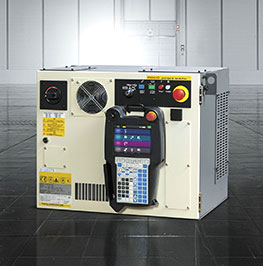

ኅዳር . 10, 2024 17:55 Back to list
Understanding the Cost of Industrial Shredder Machines
Industrial shredder machines play a vital role in various sectors, including recycling, waste management, and manufacturing. They are designed to reduce the size of materials such as plastics, metals, paper, wood, and electronic waste, facilitating easier disposal and reuse. As industries continue to focus on sustainability and efficient waste management, the demand for industrial shredders has surged, leading to a variety of options at different price points. This article aims to provide insights into the factors influencing the price of industrial shredder machines and what potential buyers should consider.
Factors Influencing Price
1. Machine Type The price of industrial shredders largely depends on the type of machine. There are different types of shredders, including single-shaft, double-shaft, and multi-shaft models. Single-shaft shredders are generally more affordable; however, they may not handle tough materials as efficiently as their multi-shaft counterparts, which are more expensive but offer greater versatility and durability.
2. Capacity The shredding capacity, which refers to how much material the machine can handle at a time, significantly affects the price. Machines with a higher throughput are usually costlier due to their robust construction and advanced technologies. Buyers should assess their needs; opting for a shredder with excessive capacity can lead to unnecessary expenses.
3. Material Compatibility Different shredders are designed to process specific materials. Machines capable of shredding a wider range of materials, including metals or tires, are typically more expensive. Buyers should consider the types of materials they intend to shred to ensure they invest in the right equipment.
4. Features and Technology Modern industrial shredders often come equipped with advanced technologies, such as automatic feed systems, variable speed options, and sophisticated control systems for monitoring performance. While these features enhance efficiency and user experience, they also contribute to a higher price point. Potential buyers must weigh the benefits of such features against their budget and operational needs.
5. Brand and Reputation The manufacturer’s reputation can significantly impact pricing. Established brands that have a history of reliable performance often charge a premium for their machines. However, investing in a reputable brand can provide peace of mind regarding after-sales service and warranty support, which is crucial for industrial applications.

6. Geographic Location The cost can vary depending on the geographic region. Pricing may be influenced by logistical factors, import duties, or regional pricing strategies. Additionally, local demand for shredders can affect availability, further impacting the pricing structure.
Typical Price Ranges
The price of industrial shredder machines can range significantly. Entry-level models may be available for as low as $5,000, targeting small businesses or those with minimal shredding needs. Mid-range machines are often priced between $15,000 to $50,000, suitable for businesses requiring short to medium shredding tasks. High-end industrial shredders, capable of handling large volumes and diverse materials, can exceed $100,000. It is essential for potential buyers to conduct thorough market research and compare different manufacturers and models to find a shredder that meets their requirements within their budget.
Evaluating Return on Investment (ROI)
When considering the purchase of an industrial shredder machine, businesses should evaluate the long-term return on investment (ROI). Investing in a more expensive machine may yield better efficiency, lower maintenance costs, and the ability to process more materials, ultimately leading to savings over time. Additionally, businesses focused on sustainability and compliance with environmental regulations may find that advanced shredders contribute to environmentally-friendly practices, further enhancing their image in the marketplace.
Conclusion
In summary, the price of industrial shredder machines varies based on numerous factors, including type, capacity, material compatibility, features, and brand reputation. Businesses must thoroughly assess their specific needs and budget before making a purchasing decision. By understanding the market landscape and evaluating all aspects, potential buyers can make informed choices that enhance their waste management processes while delivering a solid return on investment. As industries continue to evolve, investing in an appropriate industrial shredder machine will not only facilitate efficient operations but also contribute to a more sustainable future.
Latest news
Troubleshooting Common Eddy Separator Problems
NewsJul.04,2025
The Role of Metal Recycling Plants in Circular Economy
NewsJul.04,2025
The Impact of Recycling Line Pickers on Waste Management Costs
NewsJul.04,2025
Safety Features Every Metal Shredder Should Have
NewsJul.04,2025
How Industrial Shredders Improve Waste Management Systems
NewsJul.04,2025
How Cable Granulators Contribute to Sustainable Recycling
NewsJul.04,2025